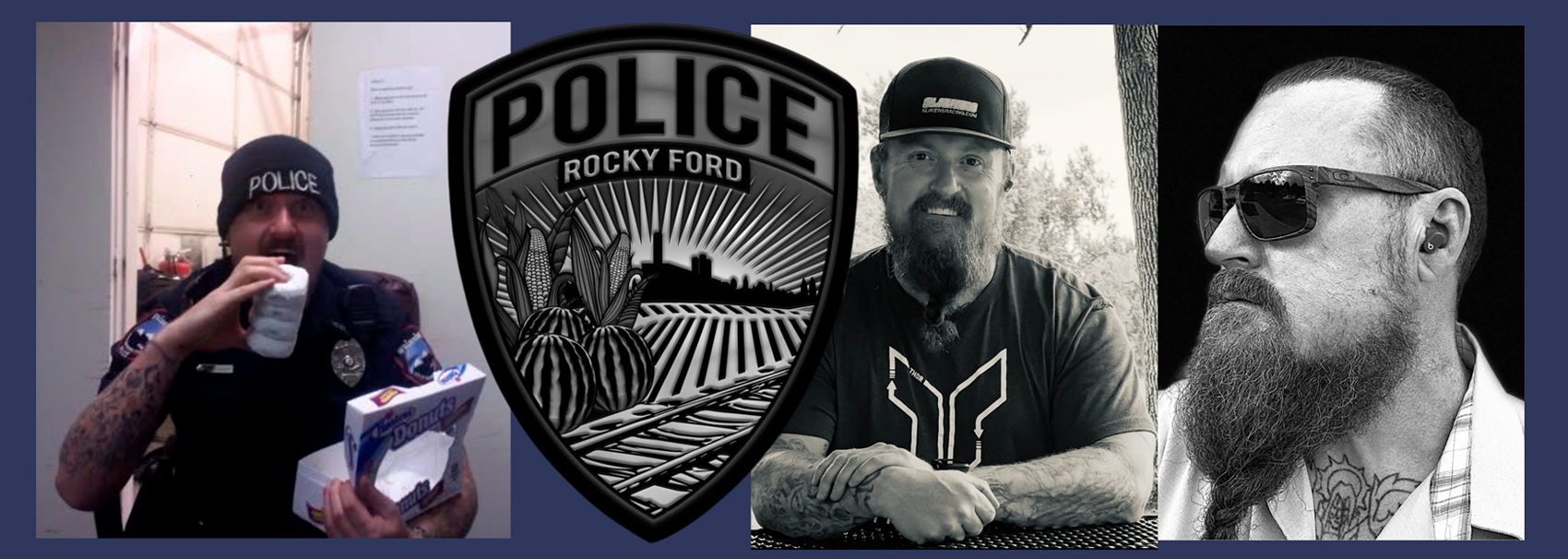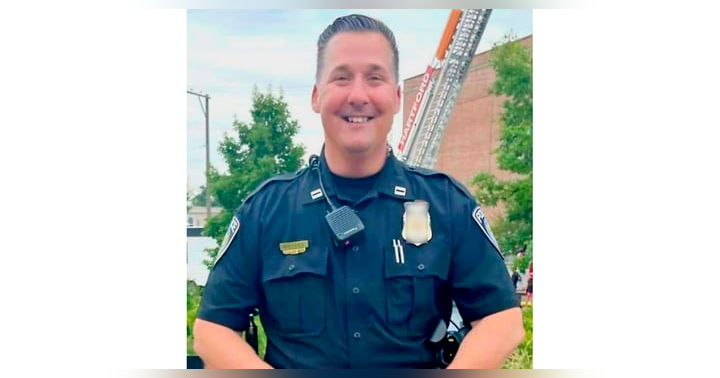Fair Trial or Wrongful Conviction?: The Divisive Case of James Ashby

Fair Trial or Wrongful Conviction? The case of James Ashby, an ex police officer from Rocky Ford, Colorado, remains one of the most debated and controversial in recent legal history. Convicted of second-degree murder for an on-duty shooting in 2016, Ashby's case has split public opinion, with some believing he received a fair trial and others vehemently arguing that he was wrongfully convicted. In this blog post, we delve into the key aspects of this case, exploring the evidence, legal challenges, and differing viewpoints to help you, the reader, form your own informed opinion. We encourage you to listen to our latest episode, Did this ex police officer get a fair trial?, where Ashby shares his perspective on the events and the trial that followed.
The Fatal Encounter in Rocky Ford, Colorado (October 2014)
On an October evening in 2014, the small town of Rocky Ford, Colorado, became the epicenter of a tragic event that would forever alter the lives of many. James Ashby, then a police officer, encountered a 27-year-old man, whose name would become synonymous with the case. According to reports, the initial interaction began as a street confrontation, quickly escalating into a chase. The pursuit led Ashby to the man's home, where, in front of the man's mother, Ashby fired the fatal shot. This single act set in motion a chain of events that would lead to a highly publicized trial and a deeply divided community.
READ THIS FREE ARTICLE: 15 Tips for Better Health, Free Ebook
The immediate aftermath was chaotic. The local authorities launched an investigation, and the details surrounding the shooting began to emerge. The prosecution argued that Ashby had acted irresponsibly, escalating a minor confrontation into a deadly encounter. They contended that Ashby followed the man without sufficient cause and ultimately made the decision to use lethal force when it wasn't warranted. On the other hand, supporters of Ashby claimed that he was acting in self-defense, fearing for his safety during the encounter. The varying narratives set the stage for a trial that would be fraught with contention and uncertainty.
Ashby's Conviction and Sentencing
In 2016, after a prolonged and emotionally charged trial, a jury found James Ashby guilty of second-degree murder. This verdict was significant for several reasons. Firstly, it was rare for a law enforcement officer in Colorado to be convicted of murder for an on-duty shooting. Secondly, it highlighted the deep divisions within the community regarding police conduct and accountability. The jury deliberated for 11 hours, carefully considering the evidence presented by both sides before reaching their decision. Fair Trial or Wrongful Conviction?: The Divisive Case of James Ashby.
The sentencing phase followed shortly after the conviction. While Ashby faced a potential sentence of up to 48 years in prison, the judge ultimately handed down a 16-year sentence. This decision, while providing some relief to Ashby and his supporters, did little to quell the controversy surrounding the case. The victim's family also pursued legal action against the City of Rocky Ford, alleging negligence in Ashby's hiring and training. They were eventually awarded a $1.3 million settlement, further underscoring the gravity of the situation and the lasting impact on the community.
Ashby's Perspective: A Flawed Trial
From the outset, James Ashby has maintained his innocence, arguing that the trial was deeply flawed and that he was wrongfully convicted. In a recent interview on the Law Enforcement Talk Radio Show and Podcast, Ashby described his bewilderment at the continued prosecution, citing issues with the investigation and expressing disbelief at the guilty verdict. He claims there were significant problems with the evidence presented and that critical information was withheld from his defense team. He firmly believes that he did not receive a fair trial and that the outcome was a miscarriage of justice.
LISTEN TO THE FREE PODCAST: Florida Deputy Arrested, Was It Fair?
Ashby's supporters echo his sentiments, pointing to perceived inconsistencies in the prosecution's case and raising questions about the impartiality of the jury. They argue that the political climate at the time, with heightened scrutiny of police actions, may have influenced the jury's decision. They also highlight the rarity of convicting a police officer in such circumstances, suggesting that Ashby was made an example of due to public pressure. These arguments form the crux of the "wrongful conviction" narrative, fueling the ongoing debate surrounding the case. Fair Trial or Wrongful Conviction?
Life Behind Bars: Beyond Hollywood's Portrayal
Following his conviction, James Ashby spent more than eight years behind bars, an experience he describes as vastly different from what is typically portrayed in Hollywood films. According to Ashby, the reality of prison life is far more complex and challenging than most people realize. He emphasizes the emotional and psychological toll that incarceration takes on individuals, as well as the daily struggles for survival within the prison system. He feels that public perception of prison is shaped by sensationalized media portrayals, which often fail to capture the true hardships faced by inmates.
During his time in prison, Ashby witnessed firsthand the issues of overcrowding, violence, and lack of rehabilitation programs. He believes that the system is in desperate need of reform and that more resources should be allocated to help inmates reintegrate into society upon release. He also stresses the importance of maintaining hope and resilience in the face of adversity, drawing on his faith and support from family and friends to cope with the challenges of incarceration. His insights offer a stark contrast to the often-glamorized depictions of prison life in popular culture.
Legal Challenges and Appeals: The Fight Continues
Despite his conviction and sentencing, James Ashby has not given up on his fight for justice. His defense team has filed multiple appeals, challenging the validity of the trial and seeking to overturn the guilty verdict. One of the key legal challenges has been a 35C motion, claiming ineffective assistance of counsel, prosecutorial misconduct, and lack of access to critical police reports. This motion argues that Ashby's original legal representation failed to adequately defend him and that the prosecution engaged in unethical practices that prejudiced the jury against him.
READ THIS FREE ARTICLE: Mystery of Pauline Pusser Sheriff's Wife Murder Resurfaces, Shocking Gaps in Investigation.
Despite these efforts, the court has consistently denied relief, leaving Ashby's 16-year sentence in place. This has been a source of immense frustration for Ashby and his supporters, who believe that the legal system is unwilling to admit its mistakes. They argue that the evidence presented in the appeals clearly demonstrates the flaws in the original trial and that Ashby deserves a new opportunity to prove his innocence. The ongoing legal battle underscores the complexities of the justice system and the challenges faced by those who believe they have been wrongfully convicted. Fair Trial or Wrongful Conviction?
The Rarity of Convicting a Police Officer
The conviction of James Ashby is notable due to the rarity of such cases in the United States. Law enforcement officers are seldom prosecuted and convicted of murder for actions taken in the line of duty. This is partly due to the legal protections afforded to police officers, as well as the challenges of proving criminal intent in situations where officers claim to have acted in self-defense. The "blue wall of silence," a code of solidarity among police officers, can also make it difficult to gather evidence and secure convictions in these cases.
Ashby's conviction has sparked debate about police accountability and the need for greater transparency in law enforcement. Critics argue that the legal system often favors police officers, making it difficult to hold them responsible for misconduct. Supporters of law enforcement, on the other hand, contend that officers face unique dangers in their jobs and should not be subject to undue scrutiny for split-second decisions made in high-pressure situations. The Ashby case highlights the delicate balance between protecting the rights of individuals and ensuring that law enforcement officers are held accountable for their actions.
A Mission to Clear His Name: Prisoner of War on Police
Since his release from prison to a halfway house, James Ashby has become an outspoken advocate for his own exoneration and for reforms in the criminal justice system. He has launched a social media campaign, using the moniker "Prisoner of War on Police," to share his story and raise awareness about what he believes were the injustices in his case. Through platforms such as Facebook, Instagram, and LinkedIn, Ashby is connecting with supporters, sharing legal documents, and providing updates on his ongoing legal battle.
LISTEN TO THE FREE PODCAST: Police Use of Force, The Controversy and Crime
Ashby's mission is driven by a desire to clear his name and to prevent similar situations from happening to others. He believes that his case serves as a cautionary tale about the potential for bias and errors within the justice system. He hopes that by sharing his experiences, he can inspire change and ensure that all individuals receive a fair trial, regardless of their background or profession. His activism reflects a deep commitment to justice and a determination to fight for what he believes is right, even in the face of significant obstacles. Fair Trial or Wrongful Conviction?
Differing Viewpoints: Fair Trial vs. Wrongful Conviction
The James Ashby case remains highly divisive, with strong opinions on both sides of the issue. Supporters of Ashby maintain that he was unfairly targeted and prosecuted, pointing to perceived flaws in the evidence and arguing that he acted in self-defense. They believe that he was a victim of political pressure and that the jury was unduly influenced by anti-police sentiment. They see him as a dedicated law enforcement officer who made a difficult decision in a dangerous situation.
Critics, on the other hand, argue that justice was served and that Ashby was rightfully convicted of second-degree murder. They contend that his actions were reckless and unnecessary, resulting in the tragic death of an unarmed man. They believe that the evidence presented at trial clearly demonstrated his guilt and that the jury reached a fair and just verdict. They see the case as an example of police misconduct and the need for greater accountability within law enforcement. The stark contrast in these viewpoints underscores the complexities of the case and the challenges of reaching a consensus on the truth.
How to Learn More: The Law Enforcement Talk Radio Show and Podcast
To delve deeper into the James Ashby case and hear his perspective firsthand, we encourage you to listen to our recent episode on the Law Enforcement Talk Radio Show and Podcast. In this episode, Ashby shares his account of the events leading up to the shooting, his experience during the trial, and his ongoing efforts to clear his name. The episode is available on Apple Podcasts, Spotify, and other major podcast platforms. You can also find additional information and resources on our website, including legal documents, news articles, and interviews with key figures in the case.
READ THIS FREE ARTICLE: Peace Officer vs Police Officer, What's the Difference?
By listening to the podcast and exploring the available resources, you can gain a more comprehensive understanding of the James Ashby case and form your own informed opinion. We believe that it is essential to consider all sides of the story before reaching a conclusion and that this case serves as a valuable lesson about the complexities of the justice system and the importance of upholding the principles of fairness and accountability. Fair Trial or Wrongful Conviction?: The Divisive Case of James Ashby.
Conclusion: Encouraging Readers to Decide
The case of James Ashby presents a complex and multifaceted narrative, leaving many to question whether justice was truly served. Was it a fair trial, or a wrongful conviction? The details surrounding the fatal encounter in Rocky Ford, Colorado, the subsequent trial, and the ongoing legal battles are all critical pieces of this intricate puzzle. In our latest podcast episode, Did this ex police officer get a fair trial?, we provide an in-depth look at Ashby's side of the story, offering listeners the chance to hear his perspective and assess the evidence for themselves.
We encourage you to listen to the episode and consider the differing viewpoints presented in this blog post. By examining all aspects of the case, you can form your own conclusion about whether James Ashby received a fair trial or was wrongfully convicted. This case is not just about one man; it's about the integrity of our justice system and the principles upon which it is built. Only by engaging with these complex issues can we hope to ensure that justice is served for all. Fair Trial or Wrongful Conviction?: The Divisive Case of James Ashby.






















